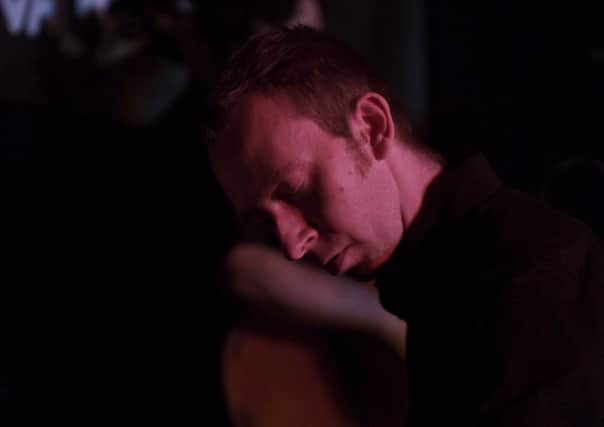Paul Harrison promises new take on fusion


Now he’s about to launch his latest project, Sugarwork, a fusion quartet combining electronica with jazz grooves and melodic improvisation.
You hear the term “fusion” all the time, the Glasgow-based, Manchester-born musician agrees. “Bands publicise themselves by saying ‘Oh, we use electronics,’ or whatever. But too often I hear a sort of 1970s fusion thing – which can, of course, be great, but because I listen to so much of it, I’m trying to come at it from a different angle.”
Advertisement
Hide AdHe’s gone about it by assembling a quartet of seasoned and creative talents from the Scottish jazz scene, all of whom he has worked with, to a greater or lesser extent, in the past. Playing keyboards and laptop, Harrison is joined by guitarist Graeme Stephen, a co-member of Breach, saxophonist Phil Bancroft, in whose extravaganza Home, Small as the World he played, and drummer Stu Brown, with whom he gigs – usually in non-jazz venues – with their electronic duo, Herschel 36. Sugarwork, still very much in development, makes its debut appearance in Edinburgh’s Jazz Bar on 23 July, during the city’s international jazz festival.
“The reason I chose Graeme and Phil is because they’re both open-minded and work with folk musicians, Scottish and Indian, so they’re bringing something fresh. Stu listens to a lot of electronic stuff and our duo, Herschel 36, is a little bit below the radar, especially from the point of view of the jazz scene; and we tend to play in dirty rock venues where it goes down really well. It’s basically free improvisation that doesn’t sound like jazz because there are no jazz instruments in it, just synthesisers and drums, with lots of electronic wizardry going on.
“Because there are no jazz structures, with melodies and solos, people engage with Herschel 36 in a different way.”
Attempting to describe Sugarwork’s sound, Harrison suggests a meeting of the US saxophonist Tim Berne and the Scottish electronic duo Boards of Canada: “Although I don’t like comparisons or pigeonholes for music”. Rather than ambient electronica, he stresses that the new band’s music will have a strong melodic element. “There will be electronic textures, but not static; we’re interacting with them so there’s group improvisation, but it won’t necessarily be your Fire in a Pet Shop [the album by WorldService Project] free improv. It’ll be quite melodic and atmospheric a lot of the time.”
While the Jazz Bar launch is the quartet’s only booked gig so far, Harrison plans to have it filmed and hopes to attract funding to enable touring and recording. “In some ways it’s got even greater potential on record, because it uses electronic studio techniques. But I’m after the best possible start and I’m glad we got the Jazz Bar as a venue, because it’s quite suited to this kind of thing.”
“This kind of thing” is just one of rather a lot of things which have engaged Harrison, who in 2009 won the Best Pianist category in the Scottish Jazz Awards and, two years later, won the awards’ Best Project section for his Hospitalfield Suite. In 2010 he was commissioned by the Scottish National Jazz Orchestra to write arrangements of music by Miles Davis for the American guitarist John Scofield to play with the orchestra. Other diverse engagements in recent years have included In a Sma Room, settings of Scots poems by William Soutar, which he performed with the singer Debra Salem and fiddler Patsy Reid, and playing with McFall’s Chamber in arrangements of music by Frank Zappa and Captain Beefheart. He also teaches at the Royal Scottish Conservatoire.
Advertisement
Hide AdWhen we talked he’d just finished writing two more arrangements for the SNJO’s current Alba: Songs of Scotland project with singer Eddie Reader – “great fun,” he pronounces.
Harrison recently turned 40 – “getting older and I think a little clearer about what I can offer that’s different. There are an awful lot of jazz piano trios and organ trios about and, much as I love to play in those settings, I’ve been thinking about what I can offer that no-one else can. That’s the reason for Sugarwork, to take these slightly crazy ideas from the back of my head and see if they work.”
See www.sugarwork.me and www.edinburghjazzfestival.com for more